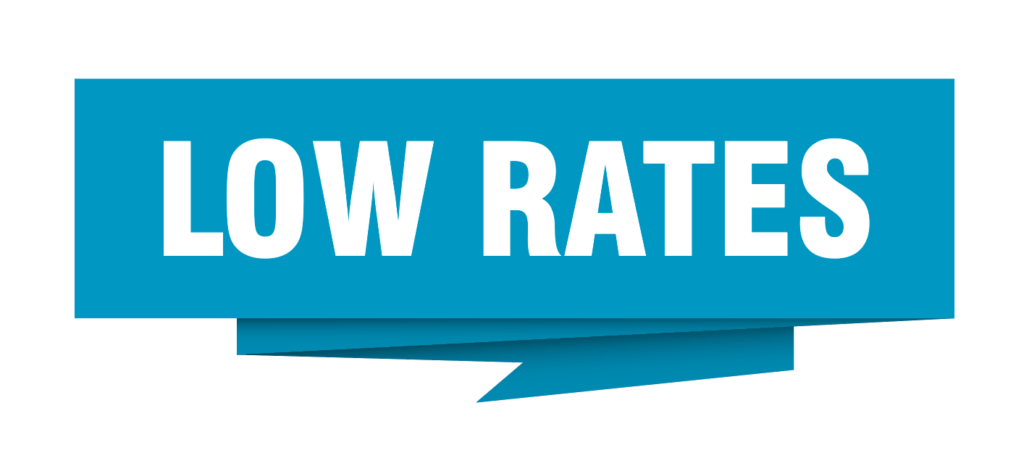Last Updated on January 22, 2026
Years ago, you made the decision to purchase a term life insurance policy. Now, you are faced with a dilemma of what happens if I outlive my term life insurance. You still have a need for life insurance coverage and your insurance policy is due to expire – and you don’t want to be left empty-handed. Reviewing your life insurance policy from time to time is vital in making sure you have the proper coverage in place, to protect your family.
If your term life insurance policy is about to expire and you are worried about what happens if I outlive my life insurance policy? Don’t be alarmed. Good news! You have choices for outliving life insurance.
Choice 1: Renew your term policy at an annual renewable rate.
Choice 2: Buy an entirely new policy.
Choice 3: Drop your life insurance entirely.
Choice 4: Convert your term life insurance into permanent insurance.
The option you choose is going to be based solely on your personal situation. However, for many people who have purchased a term policy, converting into a permanent policy is the best option.
Come on, let’s learn more!
What is Annual Renewable Term Life Insurance?
At the end of your initial term life insurance period, your policy may continue. Now these rates will not be the same rates you had previously been paying, so please don’t think that is the case. Your premium will be much higher, and if you choose to keep the policy, your rates will increase each year. To determine what your rates will be each year, should you choose to accept the annual renewable option, you should look to your outliving life insurance policy. The rates would be inside of the initial policy, or your insurance carrier could provide those to you.
According to Investopedia:
The policyholder will be able to renew each year without reapplying or taking another medical exam to reaffirm eligibility. The design of an ART is to cover short-term insurance needs. If needing a policy beyond a few years, then it may be wise to seek out a new policy that would provide level rates for a defined period of time.
Also, there is no further underwriting to continue your term policy. If you have developed some type of serious medical condition, you do not need to worry about being eligible. For many people who have a critical, chronic, or terminal illness, this would be the only type of coverage you could obtain. Or if you have poor control of your diabetes, or if you have complications from diabetes, it may be impossible to find another life insurance policy. If you fall into this category, it would generally be advantageous to you to seek out this type of extended life insurance coverage.
Purchase a New Life Insurance Policy
For some people, this may be the best option when they think about what happens if I outlive my life insurance policy. Especially if you may need a policy for 10 years, or longer. You would simply reapply for coverage with the same life insurance company, or a different one.
In some cases, when you first took out your life insurance policy, you may not have been diagnosed with Diabetes. Having diabetes now, will want you to ‘shop’ the market a little smarter, and work with the life insurance companies who underwrite the diabetes community fairly. Usually, to qualify for the lowest possible rates, you’ll need to apply for a fully underwritten life insurance policy. This simply means you would consent to a blood and urine test, as well as allow companies to review your most recent Diabetes medical records. The health information in your medical records and your lab results would determine which life insurance companies and at what rates you’d be eligible for. A policy like this would take about three to four weeks to complete. So, don’t wait until the second to apply.
Usually, to qualify for the lowest possible rates, you’ll need to apply for a fully underwritten life insurance policy. This simply means you would consent to a blood and urine test, as well as allow companies to review your most recent Diabetes medical records. The health information in your medical records and your lab results would determine which life insurance companies and at what rates you’d be eligible for. A policy like this would take about three to four weeks to complete. So, don’t wait until the second to apply.
Ideally you’d want to work with an independent life insurance agent, who specializes in working with people who have type 1 or type 2 diabetes.
Hint!
Work with an agent with Diabetes Life Solutions! We are the only group who only works with people who have Diabetes. Let us help you find the best possible policy for you and your family. If you prefer to go the route of a fully underwritten policy, we would be able to ‘shop’ your case past several life insurance companies.
For some people who have diabetes, you’d be able to qualify for a no medical exam life insurance policy. Policies like these would not require a blood and urine exam. Underwriting decisions may also just take a few days, compared to a few weeks. If you wait until the last second to replace your policy, non-medical exam coverage may be your best bet. To determine what no medical exam options you may qualify for, simply contact us. We’d love to provide some information and quotes to you.

Don’t Need Insurance Coverage? Cancel It.
Over time, your life and financial objectives change. If you come to the end of your term life insurance policy, and feel you do not need coverage any longer, simply cancel the policy. You are under no obligation to continue coverage.
IF in the future, you feel you need life insurance, by all means reapply for coverage. Your life insurance coverage should change, as your life changes. That may even mean not having any life insurance at all.
Convert Term Life Insurance Policy to a Permanent Policy
You may be wondering what all this conversion means. When you purchased your term life insurance, you knew that it would only cover you for a set number of years. Perhaps you chose term life because you didn’t think you would need it this long. Or, maybe you chose it because it was a cheaper option. Whatever your reason, once the term is up, you will need to find additional insurance, or you will no longer be covered.
This is where the ability to convert your policy comes in.
Many term life policies offer you the ability to convert your current policy into a more permanent option. Two types of permanent life insurance options are whole life insurance, and Guaranteed Universal Life Insurance. These life insurance policies allow you to continue to be covered for as long as you make your planned premiums.
And, because you are converting, rather than purchasing a new policy, there is no need for you to go through the entire application process all over again. To convert you would simply complete a two to three-page application. No medical exams, nor any health questions are needed to be answered.

Your current life insurance company will simply base a new permanent policy on your old risk assessment – and take into consideration your current age. Of course, you will want to keep in mind that permanent insurance often comes at a higher premium than term insurance, but it also builds cash value. Perhaps you didn’t have diabetes, when your policy was initially taken out. This means your permanent policy would be based off your ‘old’ insurance rating, and no extra premiums are accessed to your policy, for having diabetes.
Benefits of Converting from Term to Permanent Insurance
While converting your term policy into a permanent option may not be for everyone, there are many benefits to doing so.
- If your health has declined since the inception of your term life insurance policy, then an incredible benefit is that you can convert into a permanent policy without having to undergo another medical exam. You maintain the original health rating from your term policy. And, yes, even if your health condition makes you uninsurable – you can still covert.
- You get to make the choice about how much of your coverage you want to convert. Typically, your term insurance policy will state a conversion expiration date. So, if you make your decision before that date, the amount of coverage to convert is all yours.
- Permanent insurance policies build cash value, whereas term policies do not. Once you complete the conversion process, you can begin building cash value.
- The permanent insurance coverage you obtain can usually be canceled at any time – or if you stop making your planned payments. But, on a more positive note, it can also provide you with life insurance for your entire lifetime.
Choosing life insurance is a personal choice and the type that will fit your life may be different from the next person. While these are some great benefits, it is important to make sure you are making the best choice for your situation.
Summary of the Conversion Process
Insurance can be tricky and confusing so we thought you may welcome a nice summarization to make sure you understand how converting term life insurance to permanent insurance works.
- Despite your current health, you will still remain in the risk class you were in when you initially purchased your term policy. Quite honestly, converting is a wonderful option for those whose health has deteriorated over the term of the policy. However, if you find that you are healthier than you were when you initially took out this term policy, you may want to consider applying for a new policy altogether, rather than converting. This will allow for a new medical risk class to be stated.
- While they may not look at your current health, insurance companies do take into consideration your current age in order to determine the pricing of your new permanent policy.
Be Prepared!
Your policy premiums will increase once you complete the conversion.
- If you choose to do a partial conversion, you will need to talk with your specific insurance agent or company to determine specific policies. Some require you to have a minimum amount of coverage left on the original term policy.
- In fact, if you decide that you want to do any type of conversion, you will want to speak to your insurance company – or an independent agent. Each company has its own set of rules and restrictions.
- Keep in mind that there is often a maximum age set for when you are able to convert. This age, for most insurance companies, is around 65 or 70 years of age.
- If your term insurance policy is getting ready to expire, you must either convert to a permanent policy or buy a new term policy.
Talk to an Insurance Professional
If you are still confused about “what happens if I outlive my term life insurance”, then you should seek the guidance of an expert as your life insurance is nothing to play with. You may even want to do that regardless of your frustrations. Independent agents know the insurance world. They are familiar with how the different companies operate, what they offer, and where to find the best premiums.
 What if I don’t know whether I should convert? This is when you need to reach out to someone who knows the insurance world – and knows your best options. There are many different factors you should consider. For example, your current budget (vs. your budget when you bought your term policy), your need for flexibility, and the future needs of your family.
What if I don’t know whether I should convert? This is when you need to reach out to someone who knows the insurance world – and knows your best options. There are many different factors you should consider. For example, your current budget (vs. your budget when you bought your term policy), your need for flexibility, and the future needs of your family.
Being properly covered by your life insurance is vital. Professional guidance can help ensure that you are making the best choice for your current – and future – situation. Contact us today. Having Diabetes, and looking for life insurance isn’t always easy. We are here to help you make the best decision possible, for you and your family.
Contact us today to see how we can help ensure that your life insurance policy is set and ready to go when you need it. Life is busy and it keeps you on your toes. Don’t push the task of reviewing your policy to the back of your to-do list.
